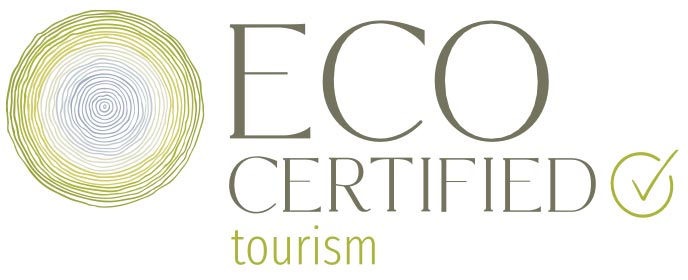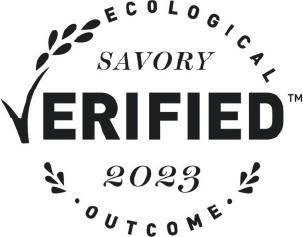Nature-based Tourism
Jandarra became certified through Ecotourism Australia’s world-leading ecotourism certification program in 2022, which has further solidified Jandarra’s commitment to ethical and ecologically sound practices and our ability to provide high-quality nature-based tourism experiences.
This means that when you stay with us, you are supporting a business that is backed by a strong, well-managed commitment to sustainable practices and provides high-quality nature-based tourism experiences.
Our certification demonstrates our commitment to:
o Looking after our natural environment
o Offering quality interpretation and interaction with guests
o Supporting and engaging our local community
o Reducing our carbon footprint through mindful use of resources
o Protecting our wildlife and endangered species
o Making measurable improvements through regenerative practices
o Helping to preserve Australian Indigenous cultures
o Providing a high-quality guest experience
The Ecotourism Australia Certification programs are recognised by the Global
Sustainable Tourism Council (GSTC) and you can learn more about Ecotourism Australia here.
How we care for and minimise our impact on the environment and wildlife is shared in more detail here:
Tania Potts, Jandarra’s steward, shepherded the not-for-profit global organisation Boomerang Bags into existence to raise awareness of plastic pollution through community engagement with co-founder Jordyn de Boer. This ethos paved a path forward into regenerative agriculture and the evolution of Jandarra Farm as another response to the ecological crisis we find ourselves in.
We are very passionate about minimising waste, repurposing materials (such as cardboard for mulching) and composting. We source most of our own food including eggs, honey from the natural bee hives and seasonal fruit and vegetables from the gardens. We are mindful when making purchases, select items with minimal packaging and monitor our resources daily. This is our normal way of living.
Plastic is ubiquitous however we request no single-use plastic (e.g. bags, coffee cups, bottled water, containers, straws, glad wrap) be brought to Jandarra and that all rubbish is taken away with you, apart from food scraps (which we give to worms or compost).
How you can help:
- Do not bring single-use plastic (e.g. bags, bottled water, coffee cups, containers, straws, glad wrap) to Jandarra.
- Bring your own reusable water bottles and borrow our shopping bags if needed
- Check with us first before bringing food, especially eggs – you will find we have many items already here including filtered water, coffee mugs and fresh eggs from our chickens (which can be purchased subject to availability).
- Take all rubbish away with you, apart from food scraps which you can place in the bins provided for us to give to worms or compost).
- Book in to sew your own reusable Boomerang Bag to take home and keep the conversations flowing about directing waste from landfill.
We harvest rainwater at every opportunity which is measured weekly.
Water use is continuously monitored to better advise guest use.
Stormwater is collected for property irrigation and cattle troughs via the dams.
How you can help: take short showers or better still, have a dip in the refreshing rock pools.
Electricity
We have a 5 kW solar farm for guests and buy 100% Accredited Green Energy for top-up. We monitor all electricity consumption.
How you can help: use natural ventilation, and leave lights and fans off unless needed.
Firewood
Firewood is collected, cut and stored from off the property and can be purchased by guests.
How you can help: guests are encouraged to keep fires small and only use what they need.
Gas
We use instant hot water systems so there is no energy wasted in keeping water storage hot.
How you can help: take short showers.
Driving
We minimise our trips into town for supplies and use of farm equipment that uses fuel.
How you can help: choose to carpool and explore the land on foot. Minimise trips into town for supplies and enjoy the stillness of being immersed in nature.
Energy and water use is continuously monitored to improve efficiency.
How you can help: follow Jandarra’s ten commandments on display in our communal shed.
Like so many Australians we volunteer for community projects like the Tallebudgera Valley Nature-Culture Alliance (NiCA) Bushfire Landcare Understories Project.
NiCA is a newly established group of landholders (including Jandarra) who have formed for the purpose of regenerating ecological communities and together we have planted 1500 native trees on the farm and adjoining creeks to stabilise riparian and eroded areas.
How you can help: Visit the local farmers' markets, shops, cafes or restaurants and pass the time of day as a local.
Use of 'cides'
Although not a certified organic farm, Jandarra Farm does not use herbicides, pesticides or fungicides. You will see some weeds in the garden but also see many butterflies, bees, and birds.
Cattle and chickens are managed using natural remedies.
Our guest facilities are cleaned with eco-friendly products using organic essential oils.
How you can help: Tell us what interesting insects, birds, and animals you see (we are monitoring the results).
Conservation
All of the property is registered Land for Wildlife, with 70% of Jandarra being bush and either ‘rewilding’ or regenerating under its own natural process from the earlier days as a banana plantation. The other 30% is managed holistically with annual monitoring through the EOV program. You can learn more here.
How you can help: Guests can sew a boomerang bag to keep, take home a starter worm farm, and learn about holistic management and farm practices.
All of the property is registered Land for Wildlife, with 70% of Jandarra being bush and is either ‘rewilding’ or regenerating under its own natural process from the earlier days as a banana plantation. The other 30% is managed holistically, which you can learn more about here.
In March 2022, Jandarra participated in a site survey as part of the Tallebudgera Valley Nature-Culture Alliance (NiCA) Bushfire Landcare Understories Project.
NiCA is a newly established group of landholders (including Jandarra) who have formed for the purpose of regenerating ecological communities and together we have planted 1,500 native trees on the farm and adjoining creeks to stabilise riparian and eroded areas.
Flora and Fauna
The following observations are drawn from that report, which identified important and protected species:
- Jandarra’s dams are fenced off from cattle and provide a habitat for common native amphibian species such as the Eastern sedge frog Litoria fallax but also potentially the Tusked Frog Adelotus brevis listed (Vulnerable), Fleay's Barred Frog Mixophyes fleayi (Endangered), and Cascade treefrog Litoria pearsoniana (Vulnerable).
- Threatened bird species that have been recorded in the local vicinity, that may be found on upper slopes where remnant vegetation is found include the Plumed Frogmouth Podargus ocellatus plumiferus (Vulnerable) and Albert's Lyrebird Menura alberti (Near-threatened).
- The Echidna Tachyglossus aculeatus has been seen at Jandarra and the upper slopes potentially provide habitat for the Vulnerable Long-nosed potoroo Potorous tridactylus tridactylus.
How you can help: Tell us what interesting insects, birds, and animals you see (we are monitoring the results) and follow Jandarra’s ten commandments on display in our communal shed.


